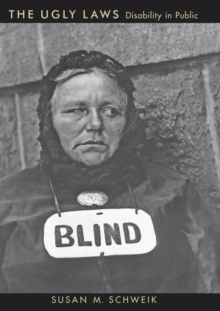
The New Disability History : American Perspectives Paperback / softback
Edited by Paul K. Longmore, Lauri Umansky
Part of the The History of Disability series
Paperback / softback
Description
A collected volume highlighting disability's hidden history in American societyDisability has always been a preoccupation of American society and culture.
From antebellum debates about qualification for citizenship to current controversies over access and reasonable accommodations, disability has been present, in penumbra if not in print, on virtually every page of American history.
Yet historians have only recently begun the deep excavation necessary to retrieve lives shrouded in religious, then medical, and always deep-seated cultural, misunderstanding. This volume opens up disability's hidden history.
In these pages, a North Carolina Youth finds his identity as a deaf Southerner challenged in Civil War-era New York.
Deaf community leaders ardently defend sign language in early 20th century America.
The mythic Helen Keller and the long-forgotten American Blind People's higher Education and General Improvement Association each struggle to shape public and private roles for blind Americans.
White and black disabled World War I and II veterans contest public policies and cultural values to claim their citizenship rights. Neurasthenic Alice James and injured turn-of-the-century railroadmen grapple with the interplay of disability and gender.
Progressive-era rehabilitationists fashion programs to make crippled children economically productive and socially valid, and two Depression-era fathers murder their sons as public opinion blames the boys' mothers for having cherished the lads' lives.
These and many other figures lead readers through hospital-schools, courtrooms, advocacy journals, and beyond to discover disability's past. Coupling empirical evidence with the interdisciplinary tools and insights of disability studies, the book explores the complex meanings of disability as identity and cultural signifier in American history.
Information
-
Out of stock
- Format:Paperback / softback
- Pages:422 pages
- Publisher:New York University Press
- Publication Date:01/03/2001
- Category:
- ISBN:9780814785645
Information
-
Out of stock
- Format:Paperback / softback
- Pages:422 pages
- Publisher:New York University Press
- Publication Date:01/03/2001
- Category:
- ISBN:9780814785645










